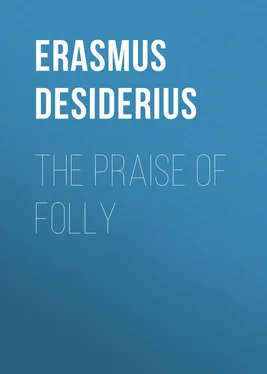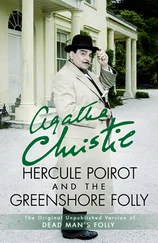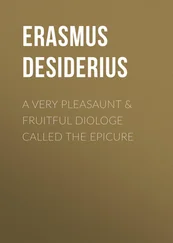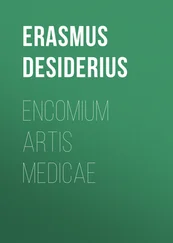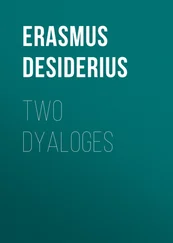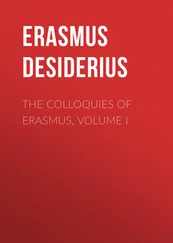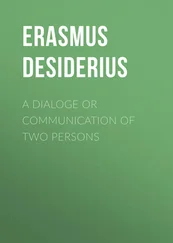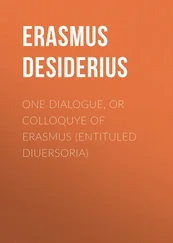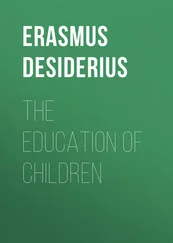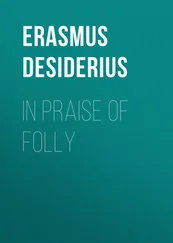Desiderius Erasmus - The Praise of Folly
Здесь есть возможность читать онлайн «Desiderius Erasmus - The Praise of Folly» — ознакомительный отрывок электронной книги совершенно бесплатно, а после прочтения отрывка купить полную версию. В некоторых случаях можно слушать аудио, скачать через торрент в формате fb2 и присутствует краткое содержание. Жанр: Словари, Религиозная литература, foreign_religion, foreign_antique, foreign_prose, на английском языке. Описание произведения, (предисловие) а так же отзывы посетителей доступны на портале библиотеки ЛибКат.
- Название:The Praise of Folly
- Автор:
- Жанр:
- Год:неизвестен
- ISBN:нет данных
- Рейтинг книги:4 / 5. Голосов: 1
-
Избранное:Добавить в избранное
- Отзывы:
-
Ваша оценка:
- 80
- 1
- 2
- 3
- 4
- 5
The Praise of Folly: краткое содержание, описание и аннотация
Предлагаем к чтению аннотацию, описание, краткое содержание или предисловие (зависит от того, что написал сам автор книги «The Praise of Folly»). Если вы не нашли необходимую информацию о книге — напишите в комментариях, мы постараемся отыскать её.
The Praise of Folly — читать онлайн ознакомительный отрывок
Ниже представлен текст книги, разбитый по страницам. Система сохранения места последней прочитанной страницы, позволяет с удобством читать онлайн бесплатно книгу «The Praise of Folly», без необходимости каждый раз заново искать на чём Вы остановились. Поставьте закладку, и сможете в любой момент перейти на страницу, на которой закончили чтение.
Интервал:
Закладка:
And now, lest I may seem to have taken upon me the name of goddess without cause, you shall in the next place understand how far my deity extends, and what advantage by it I have brought both to gods and men. For, if it was not unwisely said by somebody, that this only is to be a god, to help men; and if they are deservedly enrolled among the gods that first brought in corn and wine and such other things as are for the common good of mankind, why am not I of right the alpha , or first, of all the gods? who being but one, yet bestow all things on all men. For first, what is more sweet or more precious than life? And yet from whom can it more properly be said to come than from me? For neither the crab-favoured Pallas' spear nor the cloud-gathering Jupiter's shield either beget or propagate mankind; but even he himself, the father of gods and king of men at whose very beck the heavens shake, must lay by his forked thunder and those looks wherewith he conquered the giants and with which at pleasure he frightens the rest of the gods, and like a common stage player put on a disguise as often as he goes about that, which now and then he does, that is to say the getting of children: And the Stoics too, that conceive themselves next to the gods, yet show me one of them, nay the veriest bigot of the sect, and if he do not put off his beard, the badge of wisdom, though yet it be no more than what is common with him and goats; yet at least he must lay by his supercilious gravity, smooth his forehead, shake off his rigid principles, and for some time commit an act of folly and dotage. In fine, that wise man whoever he be, if he intends to have children, must have recourse to me. But tell me, I beseech you, what man is that would submit his neck to the noose of wedlock, if, as wise men should, he did but first truly weigh the inconvenience of the thing? Or what woman is there would ever go to it did she seriously consider either the peril of child-bearing or the trouble of bringing them up? So then, if you owe your beings to wedlock, you owe that wedlock to this my follower, Madness; and what you owe to me I have already told you. Again, she that has but once tried what it is, would she, do you think, make a second venture if it were not for my other companion, Oblivion? Nay, even Venus herself, notwithstanding whatever Lucretius has said, would not deny but that all her virtue were lame and fruitless without the help of my deity. For out of that little, odd, ridiculous May-game came the supercilious philosophers, in whose room have succeeded a kind of people the world calls monks, cardinals, priests, and the most holy popes. And lastly, all that rabble of the poets' gods, with which heaven is so thwacked and thronged, that though it be of so vast an extent, they are hardly able to crowd one by another.
But I think it is a small matter that you thus owe your beginning of life to me, unless I also show you that whatever benefit you receive in the progress of it is of my gift likewise. For what other is this? Can that be called life where you take away pleasure? Oh! Do you like what I say? I knew none of you could have so little wit, or so much folly, or wisdom rather, as to be of any other opinion. For even the Stoics themselves that so severely cried down pleasure did but handsomely dissemble, and railed against it to the common people to no other end but that having discouraged them from it, they might the more plentifully enjoy it themselves. But tell me, by Jupiter, what part of man's life is that that is not sad, crabbed, unpleasant, insipid, troublesome, unless it be seasoned with pleasure, that is to say, folly? For the proof of which the never sufficiently praised Sophocles in that his happy elegy of us, "To know nothing is the only happiness," might be authority enough, but that I intend to take every particular by itself.
And first, who knows not but a man's infancy is the merriest part of life to himself, and most acceptable to others? For what is that in them which we kiss, embrace, cherish, nay enemies succor, but this witchcraft of folly, which wise Nature did of purpose give them into the world with them that they might the more pleasantly pass over the toil of education, and as it were flatter the care and diligence of their nurses? And then for youth, which is in such reputation everywhere, how do all men favor it, study to advance it, and lend it their helping hand? And whence, I pray, all this grace? Whence but from me? by whose kindness, as it understands as little as may be, it is also for that reason the higher privileged from exceptions; and I am mistaken if, when it is grown up and by experience and discipline brought to savor something like man, if in the same instant that beauty does not fade, its liveliness decay, its pleasantness grow flat, and its briskness fail. And by how much the further it runs from me, by so much the less it lives, till it comes to the burden of old age, not only hateful to others, but to itself also. Which also were altogether insupportable did not I pity its condition, in being present with it, and, as the poets' gods were wont to assist such as were dying with some pleasant metamorphosis, help their decrepitness as much as in me lies by bringing them back to a second childhood, from whence they are not improperly called twice children. Which, if you ask me how I do it, I shall not be shy in the point. I bring them to our River Lethe (for its springhead rises in the Fortunate Islands, and that other of hell is but a brook in comparison), from which, as soon as they have drunk down a long forgetfulness, they wash away by degrees the perplexity of their minds, and so wax young again.
But perhaps you'll say they are foolish and doting. Admit it; 'tis the very essence of childhood; as if to be such were not to be a fool, or that that condition had anything pleasant in it, but that it understood nothing. For who would not look upon that child as a prodigy that should have as much wisdom as a man?—according to that common proverb, "I do not like a child that is a man too soon." Or who would endure a converse or friendship with that old man who to so large an experience of things had joined an equal strength of mind and sharpness of judgment? And therefore for this reason it is that old age dotes; and that it does so, it is beholding to me. Yet, notwithstanding, is this dotard exempt from all those cares that distract a wise man; he is not the less pot companion, nor is he sensible of that burden of life which the more manly age finds enough to do to stand upright under it. And sometimes too, like Plautus' old man, he returns to his three letters, A.M.O., the most unhappy of all things living, if he rightly understood what he did in it. And yet, so much do I befriend him that I make him well received of his friends and no unpleasant companion; for as much as, according to Homer, Nestor's discourse was pleasanter than honey, whereas Achilles' was both bitter and malicious; and that of old men, as he has it in another place, florid. In which respect also they have this advantage of children, in that they want the only pleasure of the others' life, we'll suppose it prattling. Add to this that old men are more eagerly delighted with children, and they, again, with old men. "Like to like," quoted the Devil to the collier. For what difference between them, but that the one has more wrinkles and years upon his head than the other? Otherwise, the brightness of their hair, toothless mouth, weakness of body, love of mild, broken speech, chatting, toying, forgetfulness, inadvertency, and briefly, all other their actions agree in everything. And by how much the nearer they approach to this old age, by so much they grow backward into the likeness of children, until like them they pass from life to death, without any weariness of the one, or sense of the other.
And now, let him that will compare the benefits they receive by me, the metamorphoses of the gods, of whom I shall not mention what they have done in their pettish humors but where they have been most favorable: turning one into a tree, another into a bird, a third into a grasshopper, serpent, or the like. As if there were any difference between perishing and being another thing! But I restore the same man to the best and happiest part of his life. And if men would but refrain from all commerce with wisdom and give up themselves to be governed by me, they should never know what it were to be old, but solace themselves with a perpetual youth. Do but observe our grim philosophers that are perpetually beating their brains on knotty subjects, and for the most part you'll find them grown old before they are scarcely young. And whence is it, but that their continual and restless thoughts insensibly prey upon their spirits and dry up their radical moisture? Whereas, on the contrary, my fat fools are as plump and round as a Westphalian hog, and never sensible of old age, unless perhaps, as sometimes it rarely happens, they come to be infected with wisdom, so hard a thing it is for a man to be happy in all things. And to this purpose is that no small testimony of the proverb, that says, "Folly is the only thing that keeps youth at a stay and old age afar off;" as it is verified in the Brabanders, of whom there goes this common saying, "That age, which is wont to render other men wiser, makes them the greater fools." And yet there is scarce any nation of a more jocund converse, or that is less sensible of the misery of old age, than they are. And to these, as in situation, so for manner of living, come nearest my friends the Hollanders. And why should I not call them mine, since they are so diligent observers of me that they are commonly called by my name?—of which they are so far from being ashamed, they rather pride themselves in it. Let the foolish world then be packing and seek out Medeas, Circes, Venuses, Auroras, and I know not what other fountains of restoring youth. I am sure I am the only person that both can, and have, made it good. 'Tis I alone that have that wonderful juice with which Memnon's daughter prolonged the youth of her grandfather Tithon. I am that Venus by whose favor Phaon became so young again that Sappho fell in love with him. Mine are those herbs, if yet there be any such, mine those charms, and mine that fountain that not only restores departed youth but, which is more desirable, preserves it perpetual. And if you all subscribe to this opinion, that nothing is better than youth or more execrable than age, I conceive you cannot but see how much you are indebted to me, that have retained so great a good and shut out so great an evil.
Читать дальшеИнтервал:
Закладка:
Похожие книги на «The Praise of Folly»
Представляем Вашему вниманию похожие книги на «The Praise of Folly» списком для выбора. Мы отобрали схожую по названию и смыслу литературу в надежде предоставить читателям больше вариантов отыскать новые, интересные, ещё непрочитанные произведения.
Обсуждение, отзывы о книге «The Praise of Folly» и просто собственные мнения читателей. Оставьте ваши комментарии, напишите, что Вы думаете о произведении, его смысле или главных героях. Укажите что конкретно понравилось, а что нет, и почему Вы так считаете.
